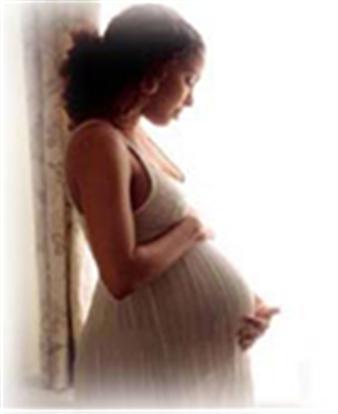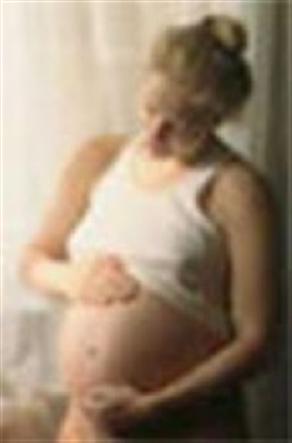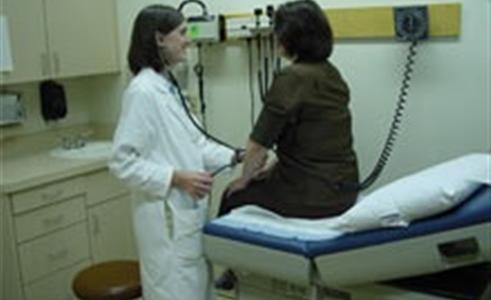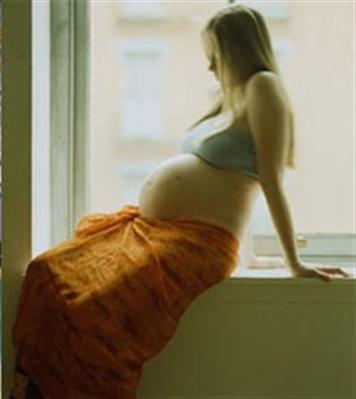
Pregnancy is an extremely pivotal event in the lives of many women. As such it is not only a physical process but involves a complex psycho-social process as well. The outcomes of pregnancy: live birth, stillbirth, miscarriage, abortion and adoption each have their unique psychological aspects and may potentially engender both positive and negative responses in the women experiencing them. Indeed some women suffer intense depression following birth, just as many grieve miscarriages, stillbirths, and adoptions. It is only logical that abortion – even when freely chosen – also has the potential for negative psychological consequences for some women – engendering grief and posttraumatic responses in some.

Worldwide there are an estimated twenty six million legal abortions per year (Alan Guttmacher Institute, 1999). While most women appear to fare well after abortion, there are some women for whom abortions involve adverse health or psychosocial consequences. Empirical studies of American women and more recently Russian & Belarusian women has shown that at least a small minority of women opting for abortion suffer psychological consequences, symptoms ranging from short-term mild distress to posttraumatic stress disorders (see Speckhard, & Mufel, 2003; Mufel, Speckhard, & Sivuha, 2002; Rue & Speckhard, 1996; Speckhard, 1987; Speckhard & Rue, 1992). Given the huge numbers of women having abortions, even if only a small percentage suffer from negative psychological responses the numbers are potentially very large.
It has been a research and clinical interest of Dr. Speckhard’s to understand the dynamics of post abortion distress within the context of all pregnancy outcomes and to untangle why some women do not cope well with abortion and are at times even psychologically traumatized by it. Likewise given that in every culture the choice for abortion and its psychosocial consequences are influenced by societal practices, it is of interest to learn if negative psychosocial responses to abortion differ or are similar across divergent cultures.

Dr. Speckhard has been studying and treating women with post-abortion stress responses, and researching and writing about stress and posttraumatic responses to abortion since 1983 when she was posted as a Public Health Service Fellow in the United Stated Department of Health and Human Services Offices of Family Planning and Adolescent Pregnancy Programs. She is author of the book Psychosocial Responses to Abortion and numerous scientific articles on the topic and has testified in court in the U.S. many times as an expert witness including to the U.S. Congress.
She has interviewed and worked clinically with women following abortion in two continents – interviewing them and trying to uncover the complex process involved in posttraumatic reactions to abortion in the countries of Belgium, Netherlands, Russia, Belarus, Romania and in the United States. Her research articles point to a potential universality in the type of negative psychological sequelae that occur in women who have adverse reactions even when they are present in women of diverse cultural backgrounds.

Similar to the cross-cultural concept of posttraumatic stress disorder it appears that when psychological attachment and recognition of life is present during pregnancy that – despite choosing abortion – these women report posttraumatic sequelae to it. They typically reexperience what they perceive as a traumatic loss in terms of flashbacks, nightmares, intrusive thoughts, avoidance reactions, and a sense of bodily hyperarousal and when these symptoms endure they can cause serious disruption in life functioning. Symptoms of post abortion distress can last beyond a month, sometimes years and may occur in a delayed response as well – often in reaction to a subsequent pregnancy, viewing an ultrasound, seeing pictures of fetal development, being around infants, experiencing a spontaneous pregnancy loss, experiencing infertility, or going through menopause, etc. Grief, guilt, dissociation, depression, anxiety, complicated mourning and psychosomatic responses are also commonly found in women across cultures who respond adversely to abortion. It appears that despite disparate circumstances of abortion provision and abortion use, women who have adverse responses are very similar across many cultures.
While some women do have adverse psychological responses to abortion it is important to state that many women also appear to do fine with abortion and some even report relating to it as a growth experience in which they were forced to confront irresponsible aspects of prior behaviors, their potential fertility and motherhood, and so on. It is a mistake to generalize from small samples and state that all women will suffer from abortion, as this is simply not supported by existing research.
What we do know is that women who recognize the fetus/embryo as a living human being (which is a perception uniquely their own), and moreover those who create a psychological attachment to their fetus/embryo appear at highest risk for posttraumatic stress and other adverse psychological responses. Indeed when a woman has created in her mind a psychological presence of the – for her – “fetal child” even very early in pregnancy – referring to her pregnancy as “my baby” she can suffer a type of boundary ambiguity after the abortion, in which her aborted “fetal child” remains psychologically present but is of course following an abortion no longer physically present. In this case she can be plagued with difficulties resolving her grief responses – particularly since we have very few instituted grief rituals for women following abortion. She may have posttraumatic responses (intrusive remembering, nightmares, flashbacks, avoidance, bodily arousal, etc.) and if she is sensitive to it she may feel guilty as well.
Likewise women who are coerced into abortion – we must acknowledge this is a reality for some women just as other forms of domestic abuse are also real – often are at greater risk to suffer posttraumatic sequelae. Younger age, more advanced pregnancy, a deficient informed consent procedure, etc. may also increase risk to adverse responses. Likewise social condemnation, the need for secrecy or personally held feelings that promote guilt (i.e. that abortion is murder) increases a woman’s likelihood of suffering guilt and anxiety responses.
Certainly as women’s psychological and physical health during and after pregnancy is of vital importance, we must study this very personal and important aspect of women’s lives more comprehensively and gain a greater understanding of why some women respond adversely to abortion. Dr. Speckhard has consulted with officials within the U.S. government, the U.S. Surgeon General, the Centers for Disease Control, the National Center for Health Statistics and the U.S. Congress always consistently calling for further and better research using representative samples to learn what percentage of women are likely to have adverse responses and which variables predict these negative responses so that we can help empower women to make the best informed choices available to them for safeguarding their physical and psychological health and well being during and following pregnancy.
If you are an individual experiencing a stressful or posttraumatic response to abortion it is wise to seek help from a qualified psychotherapist in your community who has experience working with post-abortive grief, guilt and trauma responses. Try to find one that works with posttraumatic stress in general and who will take your concerns seriously. Likewise it is helpful to work with someone who can help you to sort through issues concerning your belief system as often women who feel guilty, who experience their abortions as the death of their “fetal child” etc. have serious questions they wish to resolve concerning issues about life and death, personal feelings of guilt and the need for forgiveness. There is help available and you should be kind to yourself in seeking it out. You deserve to heal.
Publications:
•Speckhard, A., & Rue, V. (2012). “Abortion” Entry in The Encyclopedia of trauma: An interdisciplinary guide. In C. Figley (Ed.): Sage Publications.
•Speckhard, A. & Mufel, N. “Transitioning to the West: Gender Attitudes about Contraception and Pregnancy In a Former Soviet Union Country” Journal of Prenatal & Perinatal Psychology & Health Summer 2005.
•Mufel, N. & Speckhard, A. Contraceptive Behavior and Sexual Education in the Republic of Belarus. Perspectives on Sexual and Reproductive Health, Journal of Pre and Perinatal Psychology.
•Anne Speckhard, Ph.D. and Natalia Mufel Universal Responses to Abortion? Attachment, Trauma, and Grief Responses in Women Following Abortion Journal of Prenatal and Perinatal Psychology and Health, 18(I), Fall 2003
• Mufel, N., Speckhard, A. & Sivuha, S. Predictors of Posttraumatic Stress Disorder Following Abortion in a Former Soviet Union Country. Journal of Prenatal & Perinatal Psychology & Health Vol 17 (1) 2002. pp. 41-61.
•Speckhard, A. “Traumatic Death in Pregnancy: The Significance of Meaning & Attachment in Death & Trauma: The Traumatology of Surviving” Charles Figley, Brian Bride, & Nicholas Mazza, Eds. Taylor & Francis, 1996.
•Speckhard, A. “Adolescents & Abortion: When Coping Mechanism Turns Traumatic Stressor” The Brown University Child & Adolescent Newsletter, 1996.
•Speckhard, A. “Abortion: Coping Mechanism Turned Traumatic Stressor” Psychotherapy News 1996.
•Speckhard, A & Rue, V. “Complicated Mourning: Dynamics of Impacted Post Abortion Grief,” Journal of Pre- and Peri-Natal Psychology (invited article) 1993.
•Rue, V. & Speckhard, A. “Informed Consent & Abortion: Issues in Medicine and Counseling,” Medicine & Mind (invited article) 1992. 7 pp. 75-94
•Speckhard, A. & Rue, V. Postabortion Syndrome: An Emerging Public Health Concern Journal of Social Issues, Vol.48, No. 3, 1992, pp.95-119
•Rue, V. & Speckhard, A. Post Abortion Trauma: Incidence and Diagnostic Considerations Medicine and Mind, 1991; VI, 1-2:57-73
•Speckhard, A. The Mental Health Effects of Abortion on Women Testimony Given to the House Human Resources and Intergovernmental Relations Subcommittee of the United States House of Representatives March 16, 1989
•Rue, V. Speckhard, A. “The Psychological Aftermath of Abortion: A White Paper.” Prepared for Rogers, D., & Franz, W. the Office of the Surgeon General, Department of Health and Human Services, Washington, D.C. 1987.
•Speckhard, A. Psycho-Social Stress Following Abortion , 1987, Sheed & Ward Publishers, Kansas City, MO.